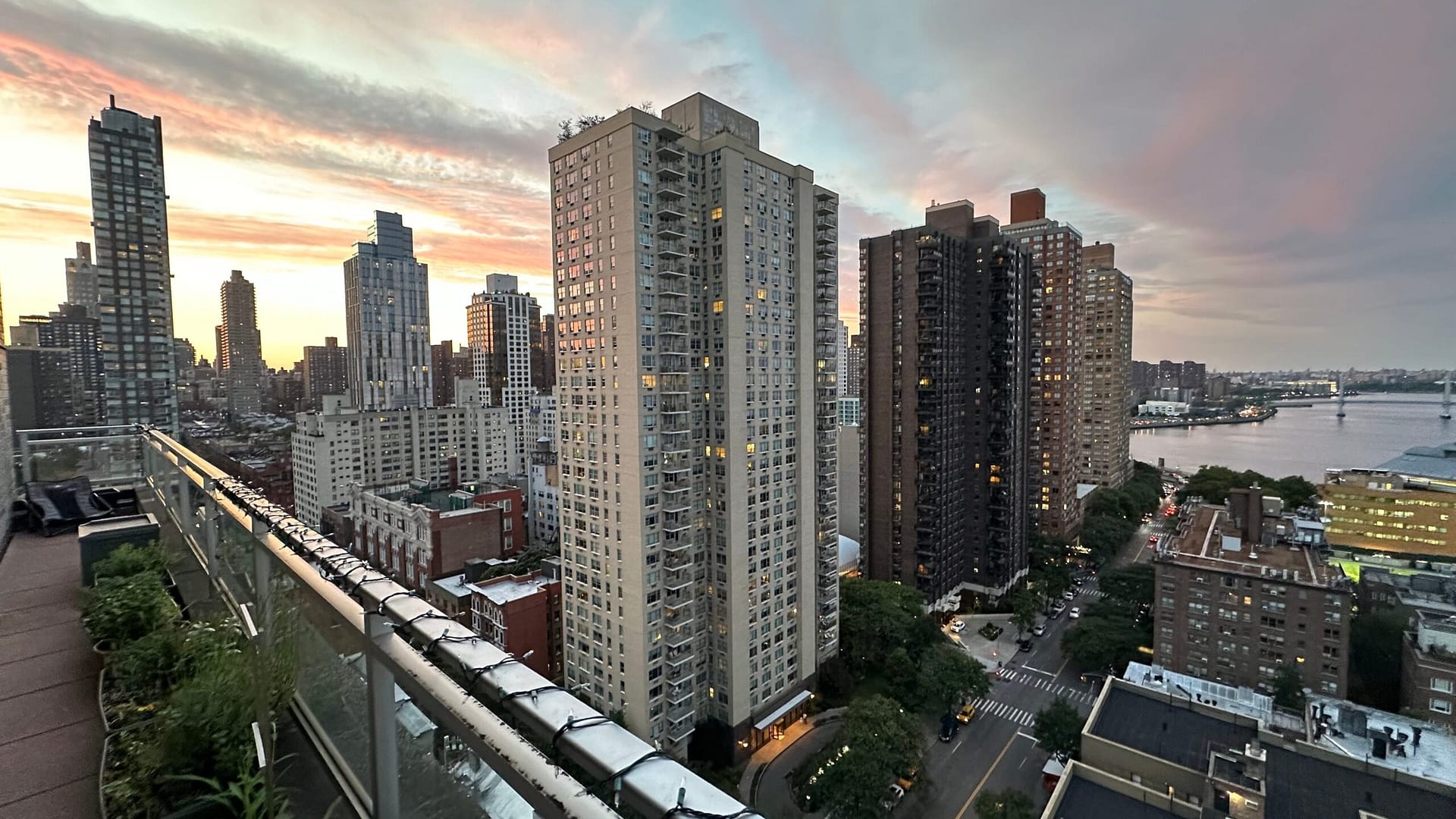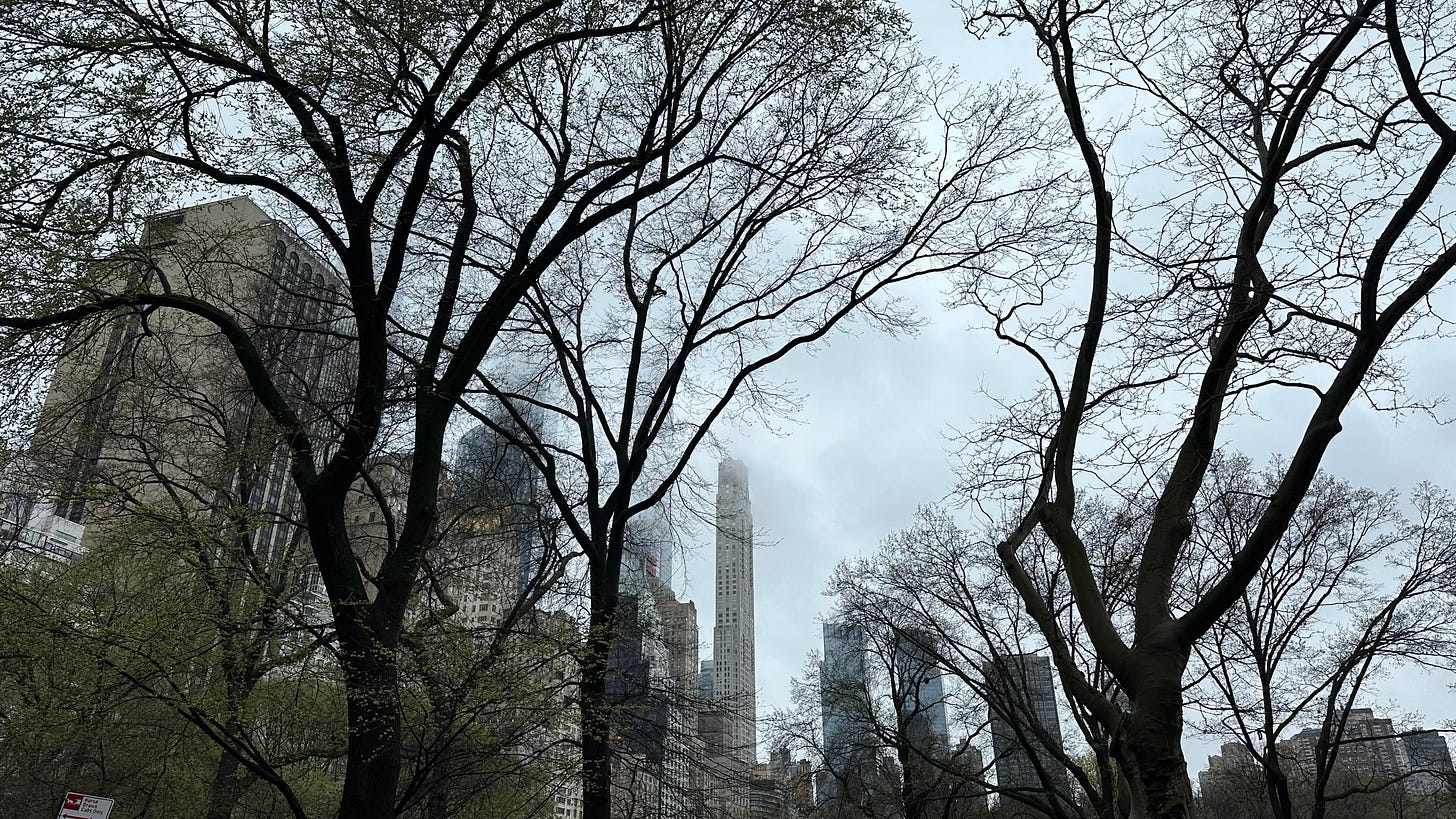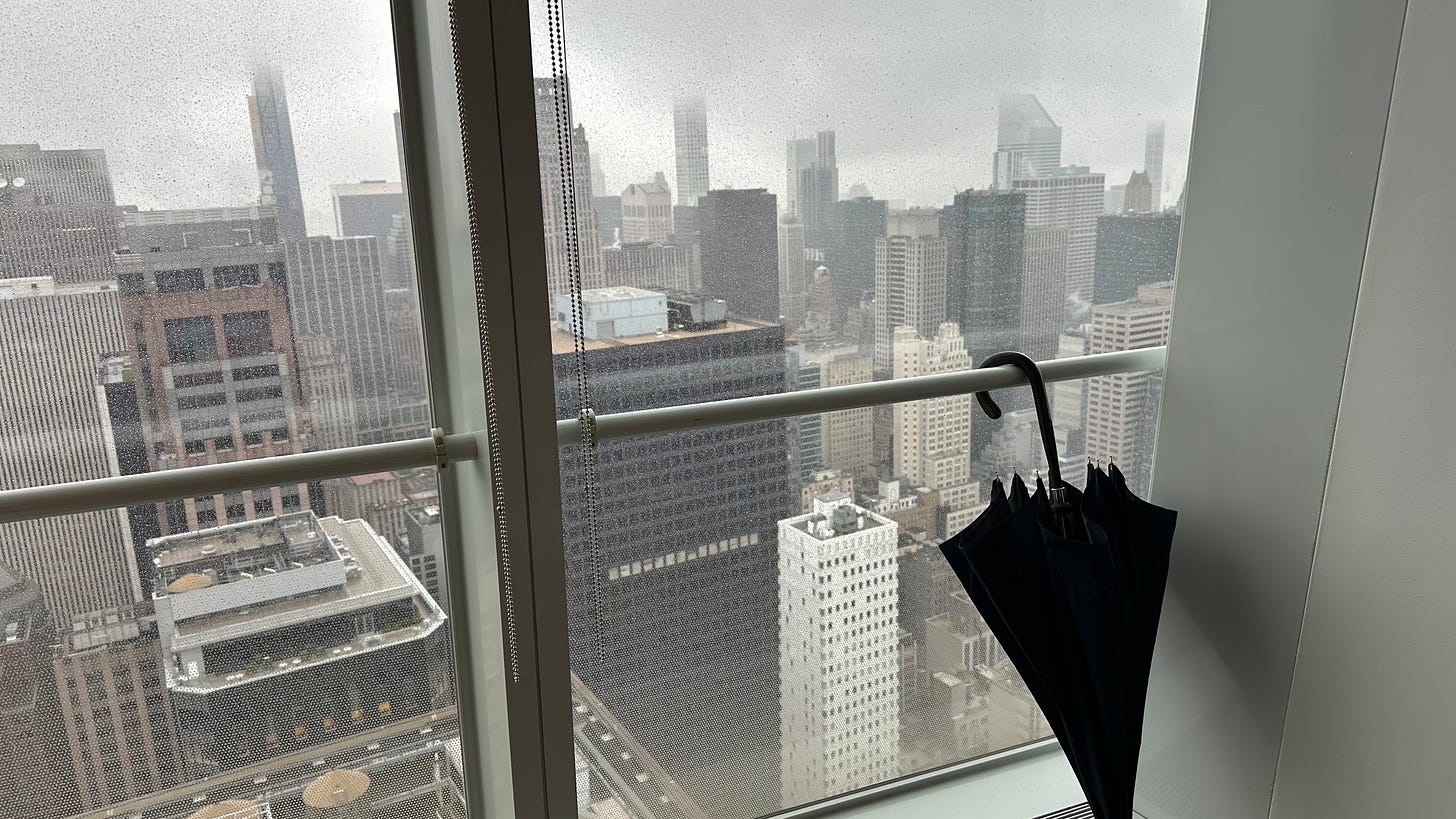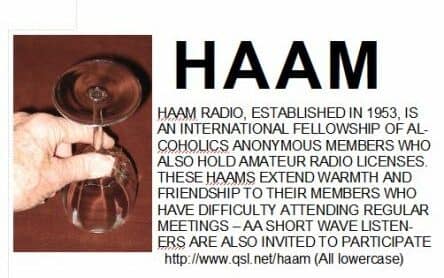I’m grateful for a really good week. I’m grateful for quiet, peace and clouds on a Friday morning. I’m grateful for what got me here and what keeps me here. I’m grateful for a sense of purpose and a long to-do list. I’m grateful to be sober today.
Subscribe now
song of the week:
I’m pretty sure this has been a song of the week before. I’m sorry, it’s just too good to be a one-and-done. Diligent readers may know that I have some maybe eccentric beliefs, and more alarmingly, attribute my sobriety to some of these eccentric, definitely far-fetched beliefs. One of these is that Spotify is actually run by my Higher Power.
To digress for a moment, in the opinion of this alcoholic, my sobriety hinged on one core belief:
That there was a higher power that could return me to sanity, help me get sober and help me stay sober.
I think Bill W. believed the same thing, the light came on for him when he realized:
It was only a matter of being willing to believe in a Power greater than myself. Nothing more was required of me to make my beginning.
Big Book, p. 12.
The thing that really triggered the spiritual avalanche was Ebby T’s simple point:
You’re free to make up your own conception of that Higher Power.
I’m a finicky m-f’er. I only get my coffee at one particular place on the upper east side, I have lots of expectations for my fellow subway riders and sidewalk sharers, I stand in the same place in the 86th street station every morning, I always order the same thing for breakfast at the diner, I really only like the Philadelphia Orchestra’s recording of Mozart’s Symphony No. 41 (Ricardo Muti conducting). I saw that as an extension of God—he was finicky, too.
I grew up going to a Lutheran Church in Iowa City, compelled to attend the 8am service every single fricking Sunday, this included Sunday School attendance. There was definitely a conception of God floating around that chilly sanctuary on Sunday mornings. Here’s what I came to believe then:
-
God was very into Bach and liked organ music.
-
God enjoyed having us congregants chant and say the same thing every week and the repetitive liturgical call and response could wake God from occasional naps in the his favorite chair.
-
God had definite expectations around my conduct and it was a good thing we did that confession and forgiveness thing right at the beginning of the service (going to John’s Grocery and spending the 50 cents in the envelope intended for the Sunday School collection on candy was both known to God and kind of pissed him off).
-
God was supposedly everywhere
-
God was about love, but not above some serious smiting of the enemies, if the situation called for it
There was a lot I didn’t understand. For example, if God was everywhere and omnipotent, why did terrible things happen to innocent people? Why did children starve? That kind of thing. Also, I really don’t think I understand Easter and what the real message is. I think what I came away with the sense that God had a very big job and that most of the concerns in my day-to-day life probably didn’t rise to his level—and probably shouldn’t. I guess you would sum it up that I believed in the existence of a higher power, but it was pretty abstract and way above my level. Maybe I thought God was the force that touched off things like the Big Bang, the guy who got things rolling and then stood back and watched how things turned out.
That view of the world/universe does kind of fit with the whole alcoholic thing. I sat on my various barstools and when I thought about God, I had this idea that watching me made him kind of sad, but like me, he was kind of resigned to the idea that this is just how things were. I wasn’t sure that my sobriety (vel non to use a fancy legal term) was at the top of God’s agenda.
I’ve come to a very different set of beliefs and I’m not sure where they all came from. I think some of them are downright silly and improbable; but then I remember that one of the things we said every Sunday was that God surpassed our limited human understanding. It’s kind of phrased in King James English and uses the word “passeth,” and since we’d been saying it every Sunday for a few hundred years, I assumed that God was nodding along when we said it. Meaning, we limited humans can’t really handle the truth, or have a choice about which color pill to take, that our minds would be permanently blown if we knew how things actually worked.
My conception of God has evolved significantly and where I once believed he was accessed mostly on Sunday mornings, coincidentally in places that always had organs, I now believe and feel God’s presence in my life in a much fuller, deeper way. When I use the word “God,” it’s hard not to personify things, but I think “God” is not really meant to be personified, I think “God” is something you feel and not just on Sunday mornings at 8:00 freaking am.
To me, “God” is a force that inhabits as much of my life as I’ll allow. I think “God” works a little like a tractor beam in Star Wars movies, when you’re locked in, everything else seems to take care of itself. Or maybe “God” operates like a radio frequency and all that meditating and stuff helps find the right signal on the dial, and helps make that signal stronger.
The metaphor matters not so much. What matters is that I found a way to let that all in. What’s “That?” I think “that” is the love and harmony and peace that inhabit the universe when we’re not f***ing things up. Maybe your experience is difference, but the years I spent in charge of my little corner of the Universe were pretty disastrous—for everyone.
I try to meditate nearly every morning. For decades, this would have been impossible for me and my hamster-wheel brain, but repeated practice eventually let me see what happened when I could clear my mind:
I think “God” started filling the emptiness.
This was not an overnight thing and is actually a little complicated. First, I had to realize that a lot of what I thought of as emptiness or loneliness was really more about my expectations, about what my life “should” be like and shame around the fact that it wasn’t like that. I created those expectations, so, in a sense, I created my own disappointments.
I began to see the way I wanted things to turn out wasn’t the way the Universe wanted them to turn out.
I think drinking was an important ally in my Don Quixote-esque fight against reality. Drinking kept me thinking that it made sense to continue to tilt at the windmills that were my expectations. But here’s the trick:
My sobriety was more about letting go of expectations than not drinking.
Drinking was only my ally, if I wanted the war to end, that had to be up to me. That meant an end to the forming of expectations about what was supposed to happen to me and what other people were supposed to do. I had to let go of that mental construct and replace it with this:
The things that are supposed to happen, generally do happen.
And there, I used the Phrase of the Day; or maybe “The phrase that pays!” I uttered the phrase, “Letting Go.” I have hated this phrase for many a year. It has been said to me literally thousands of times. In rehab, the counselors were always telling me that I had to “let things go.” My retort:
Tell me f***ing how!
You see, these things I was supposed to let go of, ex-girlfriends and wives; conflict at work and with my children, all of the unhappiness that always seemed to be cascading down on my head, well, they were chained to the inside of the cage that held the hamster wheel (and the hamsters) deep in the recesses of my alcoholic brain. What did “letting go” even mean?
You hear people talk about “closure,” and I’m not sure I understand that either. People explaining why they broke up with me didn’t really seem to accomplish much. And again, those things were chained like sad, tiny hostages in the hamster cage, remember? There was no rescue mission that seemed even remotely possible.
As my conception of “God” evolved, I noticed a strange thing: The expectations that were the fuel for the hamster wheel weren’t showing up for work as often. The hamster wheel started to sit idle for periods of time. I began to “turn things over” to the universe. Things like what other people did or felt suddenly seemed way above my pay grade. What began to creep in was gratitude. Like mint in a garden, really almost like a weed, if you let gratitude in, it starts to take the f***ing joint over.
This is a good thing, because it allowed me to see the things that “happened” to me, especially the things I didn’t like happening, maybe had some weird purpose to them. Often it was tough to discern, sometimes I realized these events were maybe for the benefit of other people, that they weren’t actually “about” me. My old view of “God” was maybe limited to the idea that he bowled the first ball and set things in motion, the resulting chaos and entropy is just what we did afterwards. To overextend the bowling thing, I began to realize “God” wasn’t about getting help on the 7-10 split, “God” infused the whole bowling alley, even the video arcade and snack bar. “God” wasn’t a result or a thing, “God” just was. “God” inhabited everything. “God” would inhabit any space I cleared out.
I can’t believe I’m about to make one of the AA cliches come true, but my sobriety has been about letting go and letting “God.” I started putting “God” in quotation marks about halfway through on purpose, because one of the transitions in my thinking is that “God” is my conception of “God.” Meaning my “God,” may not be your “God,” we may not be dating the same guy, if you know what I mean.
That is not chaos, that’s exactly how the Big Book thinks it works. The only thing that is important is that we come to believe in a higher power that can help restore us to sanity—I don’t think a doorknob can do that. But here’s the thing, when people say they can’t do AA because of the “God” thing, I have to wonder whose “God” it is? Who created this “God” that you can’t stand?
Some of the YouTube videos I watch at night are kind of surreal and since I’m often fading in and out of sleep, they get mashed up in a crazy way—lots of Carl Jung talking about parallel universes and manifesting stuff and synchronicities along with the weirdness of quantum computing and physics. All of which is convincing me that “God” and the Universe are much weirder and harder to understand than I could every have imagined. Also, way more powerful. I’m starting to believe the spacey Jungian stuff about how believing things can bring them into existence—just in another dimension. That there are pathways of communication and connection that are navigated by weird, unexplainable intuition, coincidences and synchronicities. That we maybe feel connected to people in this world because of how we’re connected in other parts of the Universe.
Is any of that true? I don’t know. That’s not part of the issue when faith and belief are involved. So, maybe it’s crazy to think that “God” has access to my Spotify playlists and likes to send me discreet nudges when I’m out walking or on the subway. “God” likes to remind me of the people who have mattered to me, the people I’ll always be connected with, maybe the people I’m hanging out with in one of those distant parallel universes.
Letting go turns out not to be about forgetting or moving on or ignoring or going no contact. Letting Go was simply about letting something else fill up the empty places in me—instead of trying to fill them myself. When I “let go,” people don’t disappear, they simply move on to whatever it is they are supposed to be connected to next, and the same thing goes for me.
The things that are supposed to happen, generally do happen. The things that are meant for me are ultimately unavoidable (good and bad). My happiness and my peace in this world, in this Universe, is a function of recognizing what is not meant for me and “letting go” as gracefully as I can manage. Letting go may initially create feelings of emptiness, loss, grief and loneliness, but it’s not about saying goodbye. Letting go is simply making space for what is meant to be.
“Letting go” actually just entails believing a couple of simple things:
Happy Friday.













